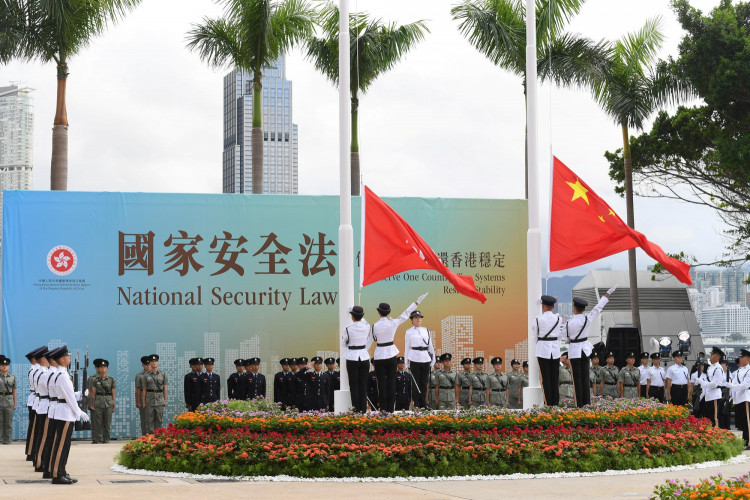Hong Kong's passage of the controversial Article 23 security law has drawn sharp criticism from foreign governments, rights groups, and business leaders, who warn that the legislation could erode the city's status as a global financial hub and further undermine civil liberties. The law, which covers newly defined acts of treason, espionage, theft of state secrets, sedition, and foreign interference, was unanimously passed by Hong Kong's opposition-free parliament on Tuesday.
Critics argue that the law ushers in a "new era of authoritarianism" and could scare off international business and investment, despite Chief Executive John Lee's efforts to draw them back to Hong Kong. Thomas Kellogg, a law professor at Georgetown University, told Bloomberg that the provisions on foreign contact could limit the activity of chambers of commerce and economic research groups, stating, "The free flow of information is the lifeblood of any vibrant market economy."
An anonymous legal academic, formerly based in Hong Kong, expressed concern that multinationals would now think twice about basing themselves in the city or moving senior people there, as Article 23 can be used "quite liberally to frame people on the grounds of espionage or theft of state secrets."
The European Union said in a statement that the new law "raises questions about Hong Kong's long-term attractiveness as an international business hub" and could "significantly" affect the work of its office and other organizations in the city. UK Foreign Secretary David Cameron echoed these concerns, saying the law would "make it harder for those who live, work and do business in Hong Kong."
The Hong Kong Media Overseas (HKMO) group warned of an increased risk of foreign media outlets leaving the city, particularly those covering "dissenting voices." The government, however, rejects claims that the laws will affect international business and investment, with Lee asserting that national security laws will help by providing a secure and stable environment.
Veteran pro-democracy politician Emily Lau called on China's leadership to heed international concerns, citing data on the exodus of foreigners, finance, and locals from Hong Kong. She acknowledged that enacting domestic national security legislation was a constitutional requirement but criticized the rushed passage of Article 23 and the lack of response to concerns raised by parties like the UN human rights commissioner.
The government's actions have proven unpopular, with Lee's approval rating at a record low since he took office unopposed in July 2022. Observers suggest that the Hong Kong government is prioritizing Beijing's wishes over those of its own people, failing to balance its goals of tightening security and maintaining its international status.
Despite efforts to attract foreign visitors through new visa schemes, reduced stamp duties on property, and international events, these initiatives have been dominated by people from mainland China. Meanwhile, reports have emerged of multinational corporations quietly shifting their operations to Singapore.
Johannes Hack, president of the German Chamber of Commerce in Hong Kong, expressed hope that the passing of the law would allow the city to refocus on "those qualities that have traditionally contributed so much to its success." However, the anonymous Hong Kong academic stated, "The reputation of Hong Kong as an international financial hub is long gone. It didn't begin with Article 23 - it was particularly after the passing of the NSL in 2020 - but it's all been downhill."
As the law is set to come into force on Saturday, the international community continues to voice its concerns over the erosion of freedoms and the potential impact on Hong Kong's status as a global financial center. The Chinese government and Hong Kong officials defend the legislation as necessary for stability and security, dismissing criticism as "smears" that are "doomed to fail."






